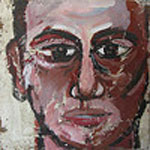There are many lessons to be learned from Iraqi history. Under the British occupation in the 20s the oil and railroad workers formed the first Iraqi unions. The British entered Iraq after World War I having defeated the Turks to gain control when the spoils of the Ottoman Empire were divided up. Major General Stanley Maude declared victory saying: “Our armies do not come into your cities and lands as conquerors or enemies, but as liberators.” For decades under British control, until 1958, unions rose and fell, flourished and were repressed. During this time Britain tried out various forms of colonial control, echoed in the strategies and debates now taking place in the Bush administration and Congress, seeking methods to keep control while preaching democracy and sovereignty.
One of the tactics of British control was the distribution of land and power to tribal sheiks and landlords, creating a power base beholden to the British—these tribal relationships would later play an important role in Saddam’s power base and today, ironically, in the resistance to the US Occupation. Prior to this British policy, land was held in a form of tribal communal ownership. So the British led the movement in the 20th century to privatize Iraq by privatizing the tribal lands and of course their oil. Now the Bush administration, in a modern version of Britain’s earlier efforts, has built its occupation and control of Iraq around a strategy to privatize the largely publicly owned Iraqi economic infrastructure, selling it to the highest bidding multinational corporation and allowing designated Iraqis to buy into the program.
The Revolution of July 14, 1958 ushered in an independent Iraq. Iraqis supported a military coup led by junior officers against the British installed monarchy. The Communist Party was the only political force at this point with a base in mass organizations and trade unions and their support was critical to the success of the revolution. For the first time Iraqi trade unions were officially legalized and substantial organizing began in many sectors. This initiated a period of progressive legislation, a new constitution and the principle of development through industrialization. Oil provided the capital to create a modern Iraqi state. These policies coincided with growing Arab nationalism and were threatening to British and US interests concerned about keeping control of Arab oil. Allowing democracy to flourish in the Middle East was not on the short list or even the long list of US policymakers at that time, anymore than it is now. And Iraqis were well aware of this.
In 1963 competing military officers, with the support of the emerging Baath party, of which Saddam Hussein was a rising star, overthrew the Revolution. This resulted in a brutal massacre of thousands of popular grassroots leaders, including trade unionists and many communists. The US made no objection to this massacre, however. It is widely believed, both inside and outside of Iraq, that the CIA also had a role in the coup. At the very least the CIA is thought to have supplied lists of communists for the Baathists to murder, which they did in house to house hunts. At the time the Communist party in Iraq was the most popular in the Middle East, advocating the social and economic needs of the average Iraqi.
In 1968, Saddam and the Baath Party staged another coup to eliminate all competitors in the government and the military and started down the road to more than thirty years of dictatorship. Trade unionists were among the major victims, but the movement survived and functioned until 1978 when another wave of executions and persecutions drove most activists into exile, prison or death. At this point Saddam and the Baath party had absolute power and no longer allowed any alternative parties or organizations to function.
Many of us are familiar with the fact that Saddam had friendly relations with the US and the West throughout the 80s when Europeans governments and the Reagan administration, including Rumsfeld himself, supplied him with WMDs. He used these weapons to fight a brutal war against Iran. His massacre of Iranians and the use of chemical weapons against them and the Kurds drew few protests from the US. — He was a bastard, but he was “our bastard.”
The good news, which you won’t read, is that there is an Iraqi labor movement. The workers didn’t have to learn how to organize from the Bremer Provisional Authority or the Governing Council. They didn’t file for elections with the NLRB. Unions in Iraq have a tradition going back to the 1920s. (Gene Bruskin, Co-Convenor, U.S. Labor Against the War).
click on the poster bellow by Latuff to read the full article

















